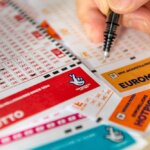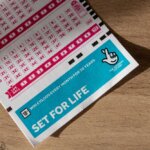Lotto Wiki is a comprehensive online database that chronicles the wide array of lottery games available around the world, their histories, and the various strategies players employ. It operates as a repository of information for enthusiasts and researchers alike, offering detailed descriptions of lottery formats, the odds of winning, and the evolution of these games over time. The platform covers national lotteries, regional games, and multi-jurisdictional draws, providing users with a wealth of knowledge about this popular form of gambling.
The resource serves not only to inform players about the different types of lotteries but also to highlight the statistical aspects and mathematical probabilities involved in these games. Lotto Wiki includes information on how lottery numbers are drawn, the selection of winners, and the distribution of prizes. There is also an educational aspect to the database, with guidelines on responsible gaming and the importance of understanding the risks associated with lottery participation.
The platform is updated regularly to reflect the latest trends and changes in the lottery industry. This includes the introduction of new games, changes to existing lottery rules, and updates on jackpot records. For those interested in the impact of lotteries on society, Lotto Wiki also provides insights into the economic benefits, such as contributions to public sectors like education, and the ethical considerations surrounding state-operated vs. private lottery organisations.
History of the Lotto
The Lotto has evolved significantly since its inception, with landmark events shaping the lottery systems we recognise today.
Origins of Lotto
Lotto, a form of gambling involving the drawing of numbers for a prize, traces its roots back to the 15th century. In Italy, the earliest record of a lottery dates to the year 1539, with the “Lo Giuoco del Lotto d’Italia” in Milan. These early lotteries were held to finance state projects, such as the Great Wall of China, as well as various public works in Europe.
Major Lotto Milestones
- 1569: The first state-sponsored lottery in England occurs, authorised by Queen Elizabeth I.
- Purpose: To raise funds for public works and fortifications.
- Prizes: Included money, silver plate, and tapestries.
- 1612: King James I of England creates a lottery to provide funds for the settlement of Jamestown, Virginia, the first permanent British colony in America.
- 1970s: The introduction of modern computer technology revolutionises the Lotto.
- Implementation: Random number generators and centralised computer systems.
- 1994: The UK National Lottery is established.
- Opening draw: 19 November 1994.
- Oversight: Operated by the Camelot Group.
- 2002: The EuroMillions lottery is launched.
- Participating countries: Initially France, Spain, and the UK; later expanded to include others.
How Lotto Works
In Lotto, players select numbers with the hope of matching them to the numbers drawn in a lottery. Winning and prize allocation is determined by the number of matches.
Basic Rules
Players choose a set of numbers from a predefined range. To win, these choices must match the numbers from the official draw. Prizes escalate with more matching numbers.
Types of Lotto Games
- Fixed Prize Games: Prizes remain constant regardless of the number of participants.
- Progressive Jackpot Games: Prizes increase with ticket sales, often leading to large jackpots.
Drawing Process
The drawing of numbers is a randomised event, typically conducted with either physical or digital mechanisms to ensure fairness. Draws are often televised or streamed live.
Lotto Odds and Statistics
Lotto games have probabilities that are precisely quantifiable, as they are based on a fixed number of possible number combinations. Analysis of lotto statistics involves scrutinising historical data to identify patterns or trends.
Calculating Odds
The odds of winning a lotto game are typically calculated based on the number of possible number combinations. For example, in a hypothetical lotto where a player must choose 6 numbers out of a total of 49, the mathematical formula used is a combination calculation:
Odds of winning = 1 / (49 choose 6)
This is equivalent to:
Odds of winning = 1 / 13,983,816
Thus, the odds of hitting the jackpot with a single ticket in this case are 1 in 13,983,816.
Statistic Analysis
Lotto statistics can be examined to determine the frequency of certain numbers being drawn or to look for other observable tendencies. However, it is essential to note that every draw is an independent event. For instance, the table below shows the number of times a particular number range has been drawn in a year:
| Number Range | Frequency of Appearance |
|---|---|
| 1-10 | 157 |
| 11-20 | 169 |
| 21-30 | 162 |
| 31-40 | 154 |
| 41-49 | 151 |
Participants often use such statistics in an attempt to predict future outcomes, although the inherent randomness of lotto draws means each number always has an equal chance of being selected in any given draw.
International Lotto Variations
Lotteries around the world offer a diverse array of games, each with unique rules and jackpot sizes. They reflect the cultural and regulatory environments of their respective countries.
European Lotteries
In Europe, lotto games have a rich tradition with EuroMillions and Eurojackpot being among the most popular. EuroMillions is played across nine countries, offering large jackpots that can reach up to €220 million. Players choose five main numbers and two Lucky Stars. In contrast, Eurojackpot involves 18 European countries, with a maximum jackpot of €90 million. It operates by having players select five main numbers and two Euro numbers.
US Lotteries
The United States is known for its sizeable lottery games, particularly Powerball and Mega Millions. Powerball is available in 45 states, the District of Columbia, Puerto Rico, and the US Virgin Islands, with jackpots starting at $40 million and having reached as high as $1.586 billion. Its gameplay involves choosing five white balls and one red Powerball. Mega Millions offers a similar scale, played in 45 states plus the District of Columbia and the US Virgin Islands, with a record jackpot of $1.537 billion.
Other Global Lotteries
Around the globe, other countries host their own lottery variations. Australia’s Oz Lotto features a minimum jackpot of AU$2 million, with a record of AU$111.97 million. Players pick seven numbers from 45. In South Africa, the National Lottery is widely played, offering several draw games, including Lotto, Lotto Plus 1, and Lotto Plus 2, with six numbers chosen from a pool of 52. The Brazilian Mega-Sena has a unique drawing format where two digits are drawn for each of the six numbers, allowing a range of 01 to 60.
Lotto Winners and Stories
Lotto draws across the globe have created staggering jackpots and memorable winner stories. These range from record-breaking windfalls to unique tales of luck and life changes.
Record Jackpots
United States: On January 13, 2016, the Powerball lottery reached a monumental jackpot of $1.586 billion. It was shared by winners in California, Florida, and Tennessee.
Europe: The pan-European EuroMillions game saw its largest prize of €210 million won on February 26, 2021 by a Swiss player.
Notable Winners
- Colin and Chris Weir: Hailing from Scotland, they won a staggering £161 million in the EuroMillions lottery in July 2011, propelling them to the top of lottery winner charts.
- Gloria MacKenzie: An 84-year-old woman from Florida won the biggest single-ticket jackpot in Powerball history at the time, a massive $590.5 million in May 2013.
Economic Impact of Lotto
Lottery games can have a significant economic impact through revenue generation and the funding of various beneficiaries.
Revenue Generation
Lotteries contribute to the economy primarily through the collection of ticket sales. The income generated is typically distributed amongst prize payouts, administrative costs, and public funding. For instance:
- Ticket Sales: In the UK, the National Lottery reported over £8 billion in ticket sales for the 2020/2021 financial year.
- Distribution of Revenue: A common distribution model may allocate 50% to prize money, 12% to administrative costs, and 38% for the benefit of public services.
Impact on Beneficiaries
The funds generated by lotteries are often earmarked for specific public sectors, such as education, parks, and health services. The actual impact can be quantified by:
- Allocated Funds: The National Lottery provides around £30 million each week to various projects across the UK.
- Projects Supported: More than 565,000 individual projects have received funding since the National Lottery’s inception in 1994.
Lotto and Society
The intertwining of lotto and societal norms is multifaceted, often reflecting cultural attitudes towards gambling and the impact of lotto on social welfare through contributions to various causes.
Societal Perceptions
The lottery is perceived variously across different societies. In some cultures, it is hailed as a harmless leisure activity, while in others, it is seen with scepticism due to moral or ethical concerns. Statistics show that participation in lottery games transcends socio-economic boundaries, with individuals from all walks of life purchasing tickets.
- Popularity: Lotto is one of the most common forms of gambling worldwide.
- Charity: Many societies view lotto participation as a means of contributing to public funds, with proceeds often allocated to sectors such as education, health, and cultural initiatives.
Responsible Gaming
The concept of responsible gaming is paramount in lotto operations. Operators, regulators, and advocacy groups emphasise the importance of playing within one’s means.
- Awareness Campaigns: Operators run initiatives to educate the public on the risks of gambling addiction.
- Tools and Support: Features such as spending limits and self-exclusion options are implemented to help maintain control.
Lotto providers often collaborate with organisations specialising in gambling addiction to provide support and resources for those in need. The adherence to responsible gaming principles is intended to ensure the wellbeing of participants and mitigate potential negative impacts on society.
Technological Advances in Lotto
The lottery industry has experienced significant changes, most notably through digitalisation. The introduction of online platforms has increased accessibility, allowing players to purchase tickets at any hour from the comfort of their homes. Online lotteries now feature automated number selection, easy payment options, and instant results.
Mobile Applications are crucial in driving advancements in Lotto. They offer user-friendly interfaces where participants can track draws, check winning numbers, and receive customised alerts. Security features, such as biometric authentication, help protect user accounts.
Advanced random number generator (RNG) technology ensures fair play in number selection. RNG systems help in maintaining the integrity of the draw process and are regularly audited for compliance with industry standards.
The integration of Blockchain technology bolsters transparency and trust. Lotto draws on blockchain networks can be publicly verified, thus eliminating concerns over tampering. Meanwhile, cryptocurrency payments have introduced a new level of convenience and anonymity for users.
Data analytics also play a pivotal role. Agencies utilise Big Data to study patterns, optimise marketing strategies, and enhance customer experience. With predictive analytics, they can target potential players more effectively.
- Automation and AI in customer service have led to 24/7 support systems. Chatbots handle queries, and AI analyses customer feedback for service improvements.
Here is a concise tabulation of key technological trends:
| Technology | Impact on Lotto |
|---|---|
| Online Platforms | Accessibility and convenience |
| Mobile Apps | Ease of use and personalised experience |
| RNG | Fairness and integrity of draws |
| Blockchain | Transparency and tamper-proof draws |
| Cryptocurrency | Alternative payment methods |
| Data Analytics & AI | Optimised marketing and customer service |
The continual evolution of technology in Lotto indicates a commitment to secure, fair, and user-centric growth.
Legal and Regulatory Framework
The legal and regulatory framework governing Lotto Wiki ensures fairness, consumer protection, and adherence to national laws. This framework varies by country and is subject to local gaming and lottery regulations.
Licensing and Regulation
Lotto Wiki operates under stringent licensing conditions set forth by relevant authorities. These licences are issued only after rigorous scrutiny of an operator’s financial stability, business model, and fairness of the games offered. For instance:
- United Kingdom: The UK Gambling Commission requires a licence for lotto operators, ensuring they meet the standards of the Gambling Act 2005.
- European Union: Operators must abide by the regulations of each member state, often requiring separate licences or adherence to a multilateral agreement.
Compliance and Enforcement
Operators must comply with an array of regulations to maintain their licences. Failure to do so can result in fines, licence revocation, or other enforcement actions. Key aspects of compliance include:
- Player Protection: Implementing responsible gaming measures and age verification processes.
- Fairness of Play: Ensuring games are random and not rigged, often verified by independent auditors.
- Anti-Money Laundering (AML): Operators must have procedures to prevent financial crimes.
Enforcement is conducted by national regulatory bodies such as:
- UK: Gambling Commission
- EU: Varies by country, e.g., ARJEL in France
Non-compliance can lead to significant sanctions, including financial penalties and operational restrictions.
Strategies and Tips for Playing Lotto
When participating in Lotto, players should be cognisant of the purely chance-based nature of the game. There are no guaranteed methods to win, but certain strategies may marginally increase one’s odds of claiming a prize.
Selecting Numbers: Choosing numbers based on significant dates like birthdays or anniversaries is common, but this restricts the pool to 1–31. To cover the entire range of possible numbers, which often extends beyond 31, consider selecting numbers randomly.
Joining a Syndicate: Buying tickets in a group, or a syndicate, allows players to pool their money and purchase more tickets. This increases the chances of winning; however, any prizes will be split among all syndicate members.
Consistent Play: Some argue that playing the same numbers every draw may increase the chances of eventually matching them. There is no mathematical advantage, yet it can streamline the playing process.
Odds and Games: Understand the odds of the specific Lotto variant being played. Some games offer better win probabilities than others.
Budgeting: It is crucial to only gamble what one can afford to lose. Setting a budget for Lotto spending prevents overspending and ensures that the game remains a leisure activity.
Avoid Lottery Scams: Players should only buy tickets from authorised retailers and beware of any unsolicited communication promising winnings, as these are likely fraudulent.
| Tip | Description |
|---|---|
| Pool Resources | Join a syndicate to boost number coverage. |
| Variety | Mix numbers to cover the full range. |
| Stick to a Budget | Allocate a fixed sum for Lotto purchases. |
| Be aware of the odds | Choose games with better win probabilities. |
| Consistent Numbers | Consider playing the same numbers each draw. |
| Avoid Scams | Only purchase from reputable sources. |
These guidelines can help players navigate Lotto with a level-headed approach.
Lotto Myths and Misconceptions
Myth 1: Certain Numbers Are ‘Due’ to Win People often believe that if a number hasn’t come up for a while, it is overdue and more likely to appear in the next draw. This is known as the gambler’s fallacy. Lottery draws are random, meaning each number has an equal chance of being drawn, regardless of past draws.
Myth 2: Quick Picks Decrease Winning Chances Some players assume selecting their own numbers gives them a better chance of winning compared to quick pick tickets, where numbers are randomly generated. In reality, both selection methods have an equal chance of winning, as each number combination has the same probability.
- Myth 3: More Entries Equals Better Odds
Entry Frequency Odds Improvement Single entry No change Multiple entries Minimal change
It’s commonly thought that buying more tickets substantially improves odds of winning. Although this is technically true, the odds increase so slightly that it does not give a significant advantage.
Myth 4: Some Lotto Games Are Easier to Win The odds of winning vary between different lottery games. However, games with larger jackpots typically have longer odds. None are categorically easier to win; odds are clearly outlined for each game.
Myth 5: Winning Is Always Life-Changing Winning the Lotto can indeed be transformative, but it doesn’t guarantee lifelong happiness or financial stability. Players need to manage and invest their winnings wisely to benefit in the long term. Furthermore, smaller prizes might make less impact than anticipated.





